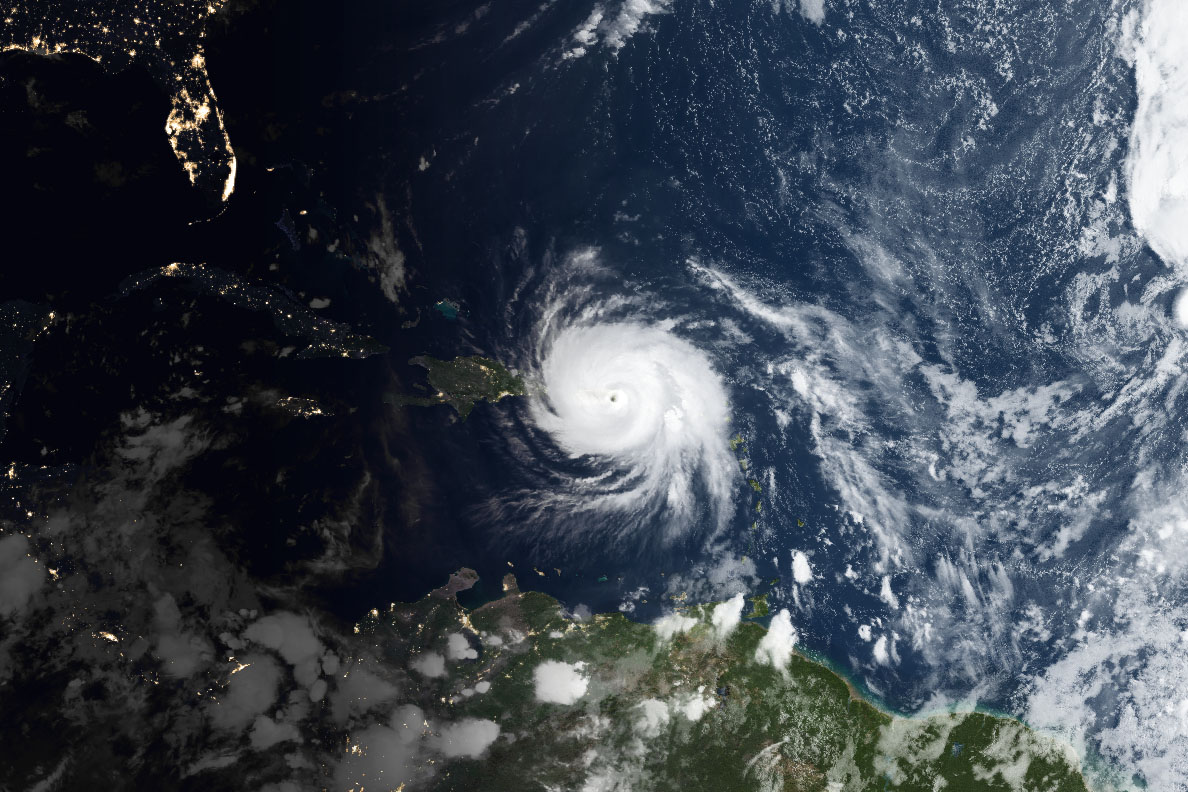EDA Continues to Support the Caribbean Following the Devastating 2017 Hurricane Season

Today, September 20, marks the fourth anniversary of Hurricane Maria. EDA continues to keep those effected by the storm in our thoughts and prayers and we are proud of our continued support of economic recovery and resilience strategies in Puerto Rico and the U.S. Virgin Islands.
Puerto Rico:
In September 2017, Puerto Rico was devastated by back-to-back storms, bringing Category 5-level destruction to the island. Hurricane Irma made landfall on September 6, followed by Hurricane Maria just two weeks later. When the storms had passed, more than fifty percent of the population was without power, affecting more than 45,000 private businesses and more than 1,800 public services. In human terms, nearly 3,000 people lost their lives.
The financial devastation was also severe. Puerto Rico’s Department of Commerce and Economic Development estimated total economic losses at approximately $20 billion. Leading financial experts, including Moody’s, gave even higher estimates of the total economic impact.
EDA, which has a long history of successfully supporting disaster recovery and resiliency efforts, was quick to help Puerto Rico respond. Through the National Disaster Recovery Framework, as established by FEMA in 2011, EDA served as coordinating agency for the Economic Recovery Support Function on behalf of the Department of Commerce. In this role, EDA provided leadership, coordination and oversight for all agencies bringing economic recovery efforts to Puerto Rico. Under a FEMA mission assignment, we deployed for the island on December 11, 2017.
Once on the ground, the Economic Recovery Support Function provided leadership and direction among all responding agencies. It began identifying those industries most capable of developing workforce development programs around the island and the capacity-building needs among disaster recovery players. To ensure a robust ecosystem, the Economic Recovery Support Function launched a strategy to quickly build expertise within the nonprofit sector. The goal was to deliver training and capacity-building efforts that would foster new, eligible applicants and increase grant-making opportunities in Puerto Rico.
Through their technical assistance and EDA funding, the Economic Recovery Support Function inspired economic development, entrepreneurship, and increased resiliency for future disasters in the non-governmental sectors, including institutions of higher education, nonprofit organizations, and private businesses.
Since 2017, EDA has granted 34 awards to the island, totaling more than $111 million. These included close to $76.2 million in 18 projects that are expected to create or retain more than 43,000 jobs and attract close to $283 million in private investment. EDA also invested close to $35.1 million in 16 projects to support planning, research, technical assistance, access to capital, or other activities that are essential for successful economic development and job creation.
The funding provided for the establishment of the Marine Business, Innovation and Research Center of the Caribbean and the EcoExploratorio Resiliency Institute, which will help Puerto Rico prepare for and respond to future natural disasters.
Additionally, through its ERSF responsibilities, EDA is working to increase economic resilience in Puerto Rico by supporting Lab F3S, which provides tools and training for writing grants to nonprofit organizations, helping to expand their outreach. It is the first economic ecosystem in Southern Puerto Rico to employ a digital comprehensive economic development strategy, in both Spanish and English, and serves as a model for equity and inclusion in regional economic development.
U.S. Virgin Islands:
EDA continues to support the recovery efforts in the U.S. Virgin Islands, which were also devastated by Hurricane Maria. In 2019, EDA facilitated a Memorandum of Understanding between the University of the Virgin Islands and the University of Puerto Rico. Its purpose is to build capacity by leveraging resources between the two universities and promote regional resiliency.
Additionally, EDA awarded a series of grants to the Virgin Islands, to aid in their recovery and research efforts. Awards totaling $27 million were provided to the Virgin Island Port Authority to upgrade and expand two airports damaged during the storms. Combined, these grants were estimated to have created 245 jobs, retained 245 jobs, and generated $3.5 million in private investment. Awards totaling $28.6 million were provided to the University of the Virgin Islands for construction of two new medical research centers. Combined, these grants were estimated to have generated $36.1 in private investment.
Today, four years later, EDA continues to work side by side with our stakeholders, committed to building a stronger and more resilient Caribbean region. Thank you to everyone who has made this work possible and continues to serve in these recovery efforts.









